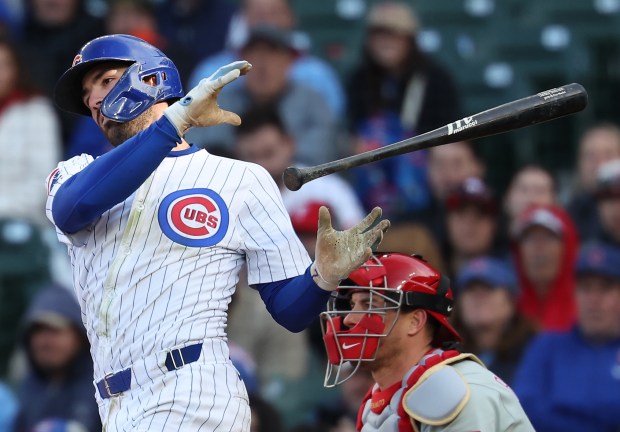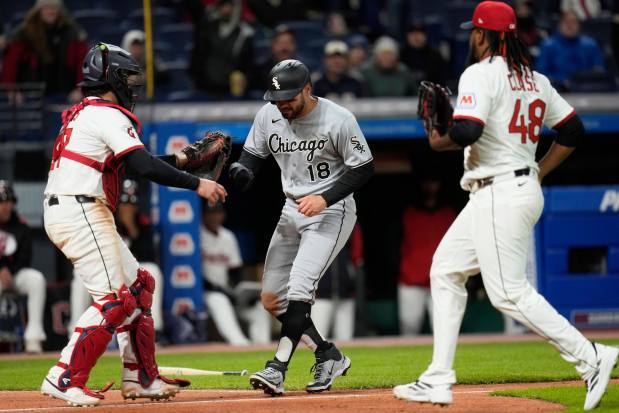SPRINGFIELD — Mayor Brandon Johnson on Wednesday touted his Springfield agenda as both “modest” and beneficial to the whole state of Illinois during his short visit to the statehouse, where he will surely face steep headwinds to accomplish what he wants for Chicago during a tough state budget season.
This is Johnson’s first visit to the General Assembly since May 2024, when he came home with lackluster results for Chicago.
Faced with ongoing reluctance from lawmakers and Gov. JB Pritzker, the mayor has fine-tuned his message this time to make the case that helping Chicago will help the rest of the state.
“This is about what we have to do as an entire state to ensure that all of Illinois is supported,” the mayor told reporters ahead of a Wednesday meeting with Pritzker. “My responsibility is the city of Chicago. Our presentation is actually quite modest — the overall, ongoing issues for revenue, that will benefit the entire state.”
The mayor was also slated to meet Wednesday with the General Assembly’s Democratic legislative leaders, House Speaker Emanuel “Chris” Welch of Hillside and Senate President Don Harmon of Oak Park.
After the 2024 disappointment, Johnson hopes President Donald Trump’s second term, and the potential for the White House to deprive Illinois of key federal funding in a number of areas, has increased the urgency for state leaders to move on his Springfield wish list.
The mayor and the governor have had a tense relationship, with Pritzker saying in recent months that he seldom hears from Johnson or his office. The visit also comes as Pritzker and lawmakers face major decisions on how to balance a $55.2 billion proposed state budget in the face of uncertainty over federal funding.
The same day last week that Johnson announced his Springfield visit, the governor suggested to reporters the mayor should have secured major financial commitments from the state much earlier.
But on Wednesday, Johnson downplayed the discord, while saying his Springfield agenda has been floated for months. “In no way the times in which the governor and I may have had different approaches is somehow some impediment to be able to do right for the people of Chicago and the state of Illinois,” he said.
“I bear no tension against anyone. I don’t,” Johnson said. “If anyone believes that politicians all sit around thinking how we can be each other’s godchildren’s parents, that’s not reality. Just because you have disagreement, doesn’t mean that that’s an obstacle. That’s called democracy.”
Johnson’s staff said this week he has four priorities for his Springfield visit: securing $12.5 million in new revenue from amending the prepaid cellphone tax; preserving $27.5 million from keeping the 911 surcharge extension in Chicago; investing in the joint city-state shelter system for migrants and homeless people, as laid out in Pritzker’s budget; and increasing funding for Chicago Public Schools via statewide grants.
Last week, Johnson chief of staff Cristina Pacione-Zayas also mentioned revenue from personal property replacement taxes and funding for the Chicago Transit Authority — which faces a steep fiscal cliff after this year ends — as priorities. Pritzker has recently opened the door for the latter issue to be resolved in the fall veto session, though a key lawmaker was optimistic a deal could be reached by the end of May.
Johnson said Wednesday the CTA funding piece wasn’t among his four priorities “because it’s on the priority list of the entire state of Illinois.” He also floated two longshot new tax ideas to find the revenue for his Springfield agenda: raising taxes on corporations, and a graduated income tax, which would require another ballot referendum.





